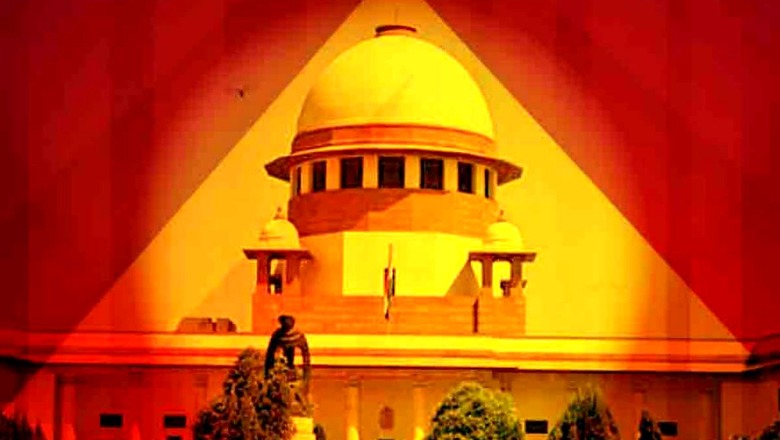
views
In a strong disapproval of attempts “to capitalise on the pandemic to force an already worn-down class of society,” the Supreme Court on Thursday ordered the Gujarat government to ensure all employers pay adequate overtime wages to workers who have been made to work for extra hours since April.
A bench, headed by Justice DY Chandrachud, junked two notifications issued by the Gujarat government by way of which the factories in the state had been permitted to extract additional hours of work from the laboruers without paying double the wages for the overtime.
These notifications, issued first in April and then in July, exempted the factories from some of the requirements under the Factories Act, thereby increasing the daily hours from nine to 12 and weekly hours from 48 to 72 without the need to pay double the wages for overtime. Two petitions challenged these notifications in the court.
While the state government sought to justify the orders under Section 5 of the Act by citing the ‘public emergency’ and ‘financial exigencies’ created by the COVID-19 pandemic and the need to provide a fillip to industrial and commercial activities, the bench remained unimpressed with the blanket order that exempted all factories from complying with humane working conditions and adequate compensation for overtime.
It noted that “financial losses cannot be offset on the weary shoulders of the labouring worker, who provides the backbone of the economy” merely by referring to a pandemic that did not result in an ‘internal disturbance’ of a nature that posed a ‘grave emergency’ whereby the security of India is threatened.
The bench also took note of the migration of the labour force during the lockdown and lamented that countless of the marginalised on foot, to rural areas in search of the bare necessities to sustain life.
“The brunt of the pandemic and of the lockdown has been borne by the working class and by the poorest of the poor. Bereft of social security, they have no fall-back options. To a worker who has faced the brunt of the pandemic and is currently labouring in a workplace without the luxury of physical distancing, economic dignity based on the rights available under the statute is the least that this Court can ensure them,” said the top court.
It reminded the authorities that a provision in the law cannot be interpreted to provide a free reign for the State to eliminate provisions promoting dignity and equity in the workplace in the face of novel challenges to the state administration, unless they bear an immediate nexus to ensuring the security of the State against the gravest of threats.
“The notifications in question legitimise the subjection of workers to onerous working conditions at a time when their feeble bargaining power stands whittled by the pandemic. Clothed with exceptional powers under Section 5, the state cannot permit workers to be exploited in a manner that renders the hard-won protections of the Act illusory and the constitutional promise of social and economic democracy into paper-tigers. It is ironic that this result should ensue at a time when the state must ensure their welfare,” regretted the bench.
It also said the Gujarat government’s notifications do not serve any purpose, apart from reducing the overhead costs of all factories in the state, without regard to the nature of their manufactured products.
“It would be fathomable, and within the realm of reasonable possibility during a pandemic, if the factories producing medical equipment such as life-saving drugs, personal protective equipment or sanitisers, would be exempted while justly compensating the workers for supplying their valuable labour in a time of urgent need. However, a blanket notification of exemption to all factories, irrespective of the manufactured product, while denying overtime to the workers, is indicative of the intention to capitalise on the pandemic to force an already worn-down class of society into the chains of servitude,” maintained the court.
The court then quashed the two notifications and directed the state government by invoking its powers under Article 142 that overtime wages shall be paid, in accordance with the Act, to all eligible workers who have been working since the issuance of the notifications.




















Comments
0 comment